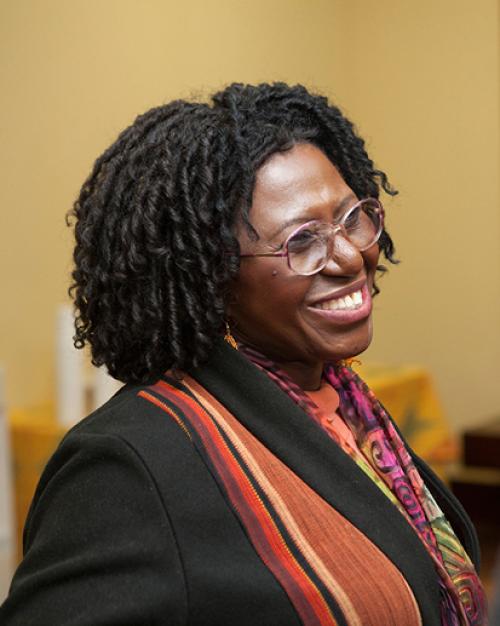“The world we have is a world created by humans,” says N’Dri T. Assié-Lumumba, professor of Africana Studies and Research. “So we have the capacity to create another world, to imagine that world, and to work toward it. That is the passion that guides my work.”
Assié-Lumumba’s passion is evident in her many articles and books that focus on education in African countries within the global context. These works reflect her educational trajectory and disciplinary specialization in comparative and international education. She looks to the future, even when her work analyzes historical situations. It is imbued with umbutu—the African concept of collective existence and the quest for justice and equal human dignity and rights. “My happiness depends on yours. We are interconnected,” she explains. “That is umbutu. It is an ethos of African society.”
Assié-Lumumba takes umbutu to heart when she looks at gender representation in African education. “Women have been consistently underrepresented in contemporary educational systems in Africa since the colonial era,” she says. “One of my arguments has been that if you want to advance the economy of a country, if you want to propel that country—or a continent—to a level of socioeconomic development, you cannot do it with men only. Education is both a right and an investment, and you cannot invest in just part of the population.”
Read the entire story on the Cornell Research website.




